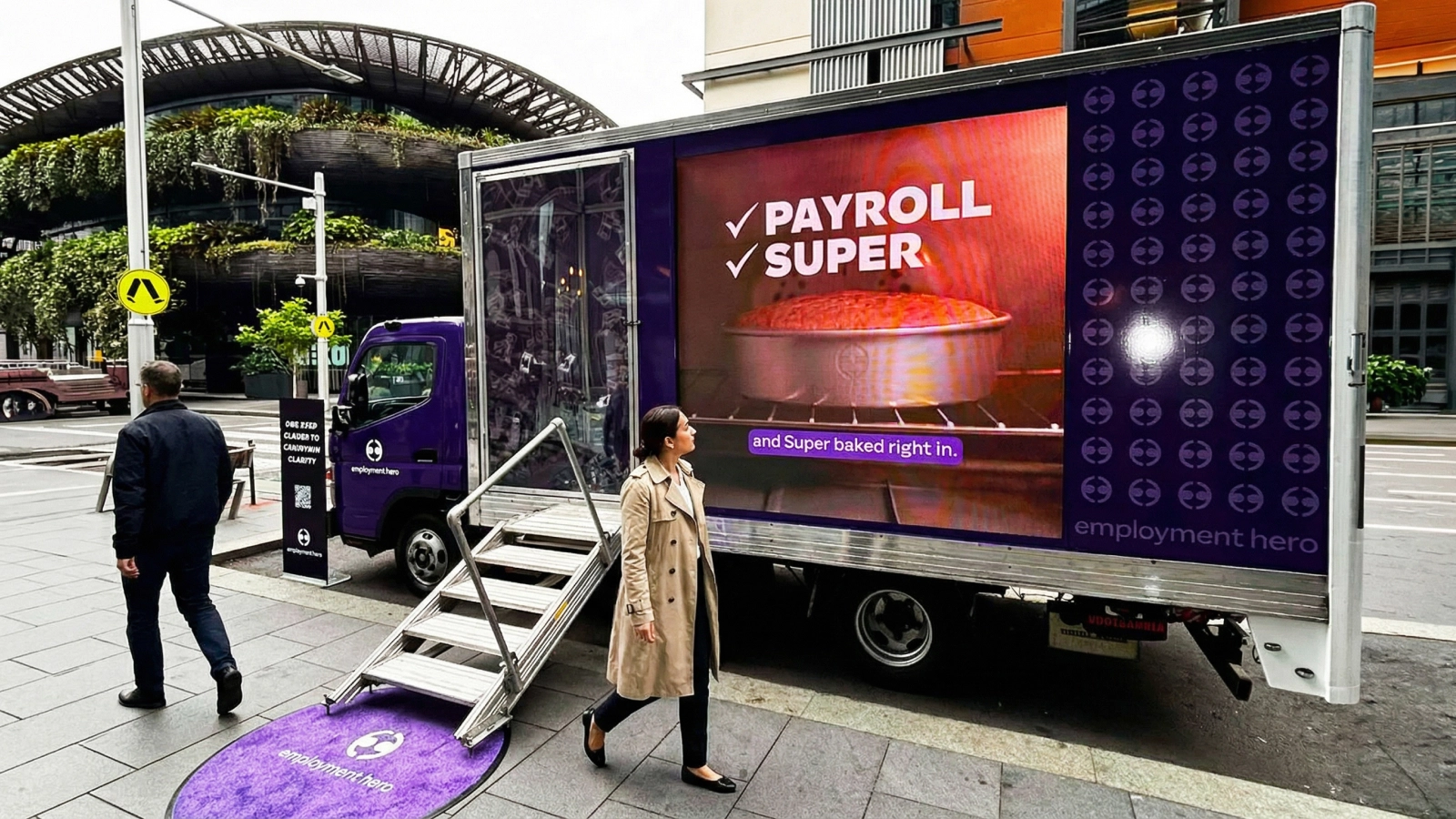Despite fears that AI could wipe out millions of jobs, former Finder CEO Chris Ellis says we’re entering a new era, one where ‘missing link’ roles will unlock fresh opportunities for job seekers.
The mid-90s saw people logging onto the internet for the very first time. It was a moment that breathed life into a new world of work and technological innovation connecting people around the world to make new and exciting things.
This singular moment in history was to become a career-defining moment for Chris Ellis, former CEO of comparison behemoth Finder.com, now CEO of AI startup Collabra AI. “Without sounding too grandiose, I saw that it had the power to change the world,” he recalls. “I was working in a small payments business and could so clearly see the way forward for things like online shopping. So I just sort of opted in.”
For Ellis, the buzz around AI feels like déjà vu. He remembers the internet boom of the 90s, when nobody really knew what they wanted from it, only that it would change everything. He says AI is at that same messy, thrilling stage of adoption. To illustrate the point, he paraphrases American industrialist and business magnate Henry Ford: “If I had asked people what they wanted, they would have said faster horses.” The lesson, Ellis argues, is that we can’t measure the potential of AI by today’s demands. Like the internet, its true power will only reveal itself once we stop looking for faster horses and start imagining cars.
However, while small and medium-sized business leaders may feel the pressure to adopt AI into their operations, a report from MIT found that 95 percent of AI pilots have failed to do so, leading to what Ellis calls a “trough of disillusionment.” Which in turn suggests that many businesses aren’t even imagining faster horses just yet.
According to Ellis, this isn’t a technology problem; it’s a vision problem. We’re so focused on automating the “busy work” that we’ve forgotten to ask the most important question: what happens next? He believes that as AI begins to eliminate repetitive tasks, critical, human-centric roles are emerging as the ‘missing link’ every business will soon be hiring for.
Solving the ‘boring but valuable’ problems
Before you can build the team of the future, you have to clear away the debris of the past. For Ellis, that means focusing on practical, measurable wins. “Leaving Finder, I wanted to join a company that’s genuinely solving problems,” he notes. He was drawn to Collabra AI precisely because they build AI agents to solve the “sticky and difficult” back-office problems that quietly drain resources from every medium-sized company.
“All that work that has to be done but is incredibly repetitive like getting data from A to B, invoicing people, logistics, pricing,” Ellis explains. “Rather than getting too tangled up in ‘what should our AI strategy be?’,” he suggests, get started with something that can “prove value quite quickly” and build from there.
He advises leaders to provide clear direction. “It’s a leadership responsibility to give their people direction as to where you want them to start, what you want them to come back with and give them the tools to do it.” He recommends starting with simple wins like “summarising meetings, using AI to organise your meetings in the most effective way, optimising emails, evaluating and updating old webpages, relatively simple things you can just get going with.”
Crucially, this journey requires transparent leadership. Ellis points to companies like Shopify and Linktree, which have released public statements about their AI roadmaps. “Leaders need to have the nerve to tell the full story whenever they can so that employees can orientate themselves,” he says.
The new power duo of data specialists and consultative sellers
So, what are those opportunities? As automation handles the grunt work, Ellis sees two “opposite sides of the coin” roles becoming more critical than ever. The first is a need for strategic data specialists, focused on pulling valuable insights for the company’s AI to harvest and finding the signal in the noise.
AI can sift through endless spreadsheets and customer records, but it takes a human to ask the right questions and translate the output into genuine business intelligence. “AI data expertise, data specialists who can produce real insights is what’s valuable to us,” Ellis says. “This isn’t the data entry job of the past.”
On the other side of the coin are the people who face the market. As products become more complex, the sales process is fundamentally changing. “Smart market-facing salespeople with consultative ability are going to be the missing link over the next few years,” Ellis predicts.
“It’s not like software businesses of the past, where you’ve got a product and it’s just selling for licenses. Salespeople are going to need to really understand how the company needs to apply the AI to their business.”
These individuals will act as translators and strategists who “help people decode a practical path” to success. Ellis says this requires empathy and trust, inherently human skills that foster partnerships, not just transactions. Therein lies a huge new opportunity in the workforce, people that are equipped to harness the power of AI and then deploy it in hyper niche instances in hyper niche businesses.
Ellis believes these seven roles will become increasingly in demand as businesses continue to transition from anti-AI, to AI-integrated.
7 AI-Powered Roles for the Future
As AI becomes a core part of business operations, a new suite of specialised roles is emerging. These jobs blend technical skill with human insight and will be critical for any company looking to stay competitive over the next decade.
- AI Trainer and Data Curator
- These professionals are like teachers for AI models. They select, clean, and label the data that AI systems learn from, ensuring the outputs are accurate, relevant, and free from bias.
- Prompt Engineer / AI Interaction Designer
- Often called “AI whisperers,” these specialists craft the precise instructions (prompts) needed to get the best possible results from generative AI tools. They design the conversation between humans and machines.
- AI Ethics Officer
- This role focuses on identifying opportunities to streamline workflows across the business. They are experts in integrating various AI tools to eliminate repetitive tasks and free up human employees for higher-value work.
- Automation Specialist
- This person connects the dots between what AI can do and what the business should do. They work with leadership to identify how AI can create new products, enter new markets, and build a sustainable competitive advantage.
- AI Business Strategist
- This person connects the dots between what AI can do and what the business should do. They work with leadership to identify how AI can create new products, enter new markets, and build a sustainable competitive advantage.
- Human-Machine Teaming Manager
- As AI agents become colleagues, this manager’s job is to optimise collaboration between human and AI teams. They ensure workflows are seamless and that each side (human and machine) is doing what it does best.
- AI Auditor
- Similar to a financial auditor, this role is responsible for testing and verifying the performance and reliability of AI systems. They check for accuracy, security vulnerabilities, and compliance, ensuring the AI is trustworthy.
The future of work is bright
For those who have deep concerns that their job is being automated away, Ellis offers a hopeful perspective. The elimination of busy work creates a launchpad for more meaningful careers. “I think when you pull back a bit and stop talking about the technology or even the features, but you talk about the problem you’re trying to solve, then it invites more people into the conversation,” he says.
The future isn’t about competing with machines but collaborating with them to amplify our most human skills. “I have always believed that technology is a net good,” Ellis concludes. “I think AI will be overwhelmingly positive for us all.”


























